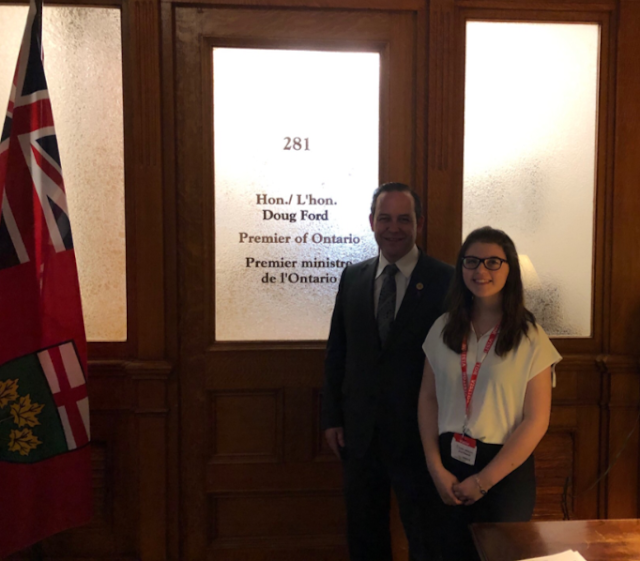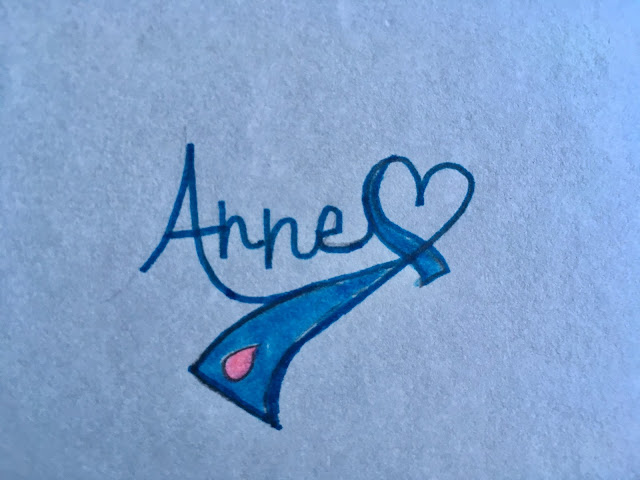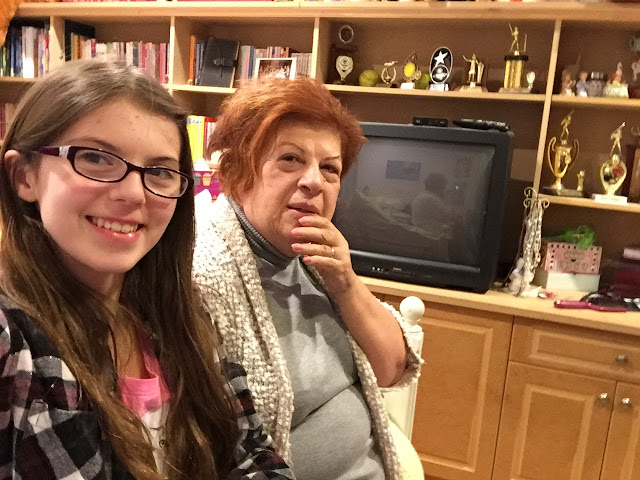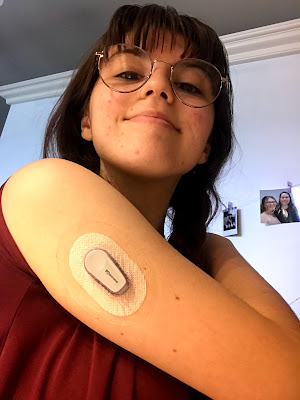Diabetes Taxes
You know how most places have taxes? You get to live and work there, but depending on what your income is and how much of a profit you're making, you have to give a percentage of that profit to the place's government. I think that's fair to a certain extent: you get a little, you give a little.
I think that, as a person, my physical being is sort of like a country. I am the leader of my body: the Prime Minister of Anne, if you will. As the Prime Minister of Anne, I provide my brain, lungs, liver, bladder, kidneys, heart, stomach, intestines, and a bunch of other organs, or provinces, with the energy and nutrients they need to survive. In return, they allow my body to function: my brain controls my fundamental body functions, my lungs allow me to breathe, my heart pumps blood, my stomach digests food. They get a little, they give a little. These organs all pay their taxes.
The beta cells in my pancreas sort of died a few years ago, so the province of Pancreas can't pay me its taxes and provide me with insulin. I understand why it can't give me insulin anymore, though. It isn't its fault, it's diabetes's fault for knocking out my beta cells.
Even though I can't use Pancreas for insulin anymore, that doesn't mean it has nothing to offer me. I'm a resourceful Prime Minister; therefore I refuse to believe that the loss of its beta cells renders Pancreas completely and utterly useless.
A Brief Moment in Anne's Diabetic Dictionary
DIABETES TAX (DT); noun
Pronunciation: dye-uh-bee-tees t-acs
1. A tax implemented when one or more person(s) find themselves without functioning beta cells, meant to satisfy that person's need for Pancreas's contribution to their well-being.
Cause: The immune system of a T1Diabetic needs to learn the difference between ENEMIES and BETA CELLS
Used in a sentence: "Alright, Pancreas, I've come to collect the DT."
This Has Been a Brief Moment in Anne's Diabetic Dictionary
Your pancreas can't give you insulin since it doesn't have any beta cells, so it can't do its job in helping to keep you healthy. However, health isn't the only important part of life. I mean, it's what allows you to survive, but surviving isn't living. Your pancreas can't really do anything for your health, but what can it do for your quality of life? How can you make the most out of a sucky situation?
Society has a way of unintentionally sending a message to people who live with an illness, disease, or disability. I mean, what's the first thing you do when someone tells you that they're sick? You say, "I'm sorry." Right? You tell them, "I'm so sorry for you."
Everyone does this. Everyone expresses pity for those who live with sickness because it's what has been drilled into our brains as common procedure. If someone is sick, you feel sorry for them, at least a little bit, because they have suffering in their life. And because they are suffering, because they are sick, they can't live as good a life as everyone else can, right?
I don't think that's true.
Let's assume it is for a second, though. Let's say that if you have suffered in your life, or have dealt with pain, or struggled, or been unhappy, then your life is not good. If that is true, then nobody on earth right now has a good life. Because every single person alive is struggling with something. It might not be a sickness or a disability, but if it's not that then it's something else. School is stressful, relationships are hard, work is tiring, rent is expensive, sometimes life gets in the way: we are never going to be not struggling with something.
If struggling equals a bad life, then we're all doomed. Seriously, we might as well kiss society and culture and humanity as we know it good bye.
Thankfully, I know that struggling doesn't mean you can't have a good life. If you judge your life's worth only by your happiness, then you might think that's not true. But if you accept that we're all struggling with something, and that we are not going to be happy every minute of every day, then you can begin to understand how you can make a good and meaningful life for yourself even with that struggle.
I'll give you an example:
Me with P.A. Doug Downey
Me explaining the importance of CGM's and FGM's to MPP Robin Martin
I'm terribly sorry because I don't remember this kind gentleman's name (I think it was something like Todd 😬), but he gave me one hundred rupee (which is worth two whole Canadian dollars!) that he brought back from India!
Me sitting in the Minister of Finance's chair (Mr. Downey and his assistant, James, who took all these pictures by the way, told me I was allowed to do this)
Once in late February and once in mid-March, I was in Queen's Park lobbying for provincial funding for continuous glucose monitors (CGM's) and flash glucose monitors (FGM's) by meeting with MPP's (click here and here to read my posts about those meetings more in detail). Being a part of these meetings, and getting a chance to advocate for something that is important and making a difference in a lot of lives was a wonderful opportunity for me, and I never would've gotten it if I didn't have diabetes. That's the Diabetes Tax in action.
The first person I met with in my series of six or seven meetings was P.A. Doug Downey (Parliamentary Assistant to the Minister of Finance). After our meeting was finished, he very kindly invited me to come back to Queen's Park for a day and follow him around as he went about his daily business. All was arranged, so last Thursday I got up bright and early and headed off to see what the typical day of someone who works in Queen's Park is like!
I had an incredible experience that day. I got to sit on a bunch of meetings, watch Question Period (which I found entertaining as always), and meet the Minister of Finance (Mr. Vic Fedeli), the Parliamentary Assistant to the Minister of Health and Long-Term Care (MPP Robin Martin), and a bunch of other people! I had a whole five minutes to discuss why I was there (which led to the importance of CGM's and FGM's) with both of them, which a lot of time in the very busy schedule of someone who works in Queen's Park. This was an amazing amazing opportunity that I never would've gotten if I didn't have diabetes. That's how Pancreas is paying its DT.
Because I have diabetes, I was able to go to Ottawa to raise awareness about Type 1 through JDRF's Kids For a Cure Lobby Day (click here to read my post that talks about Kids For a Cure more in detail). Diabetes Tax.
Going to Kids For a Cure lead to me becoming a Youth Ambassador for JDRF (Juvenile Diabetes Research Foundation), which has given me a lot of opportunities to speak at different events and to influence and educate the people around me. Diabetes Tax.
I know that everyone's situation is different, and that sometimes it can be really really hard to not feel sorry for yourself when you're living with something as hard as diabetes is. But if you look at a situation like the one that all T1Diabetics share, you can think two things:
1. Their life must be so hard. I'm so sorry for them, I could never do what they must do on a daily basis.
or
2. Wow. They've been given an opportunity here... yes, it will be a hard path, and there will be obstacles. But what will they choose to make of this opportunity?
If you ask yourself that question, if you ask yourself what you can make of what you've been given, then you've already started living a good life. You might not want to or be able to speak with Members of Parliament, but what can you do? What do you want to do with what you have, what can you be? How can you make the most of a seemingly sucky situation?
Only you can answer that question, because only you know your situation, who you are, and who you want to be by heart. Is there change you want to see in the world? Do you want the way you're seen by others to change, do you want your future changed, do you want the way people are being treated changed?
If you want to see change in the world, you can't sit back and wait for someone else to do it for you. You need to be the change you want to see. Because nobody else can make change exactly the way you can. Everyone's voice is different, everyone's voice is unique, everyone's voice is special. You were given a voice. You can make an impact, you can stand up tall and demand to be heard, you can use your voice to be the change for the future.
So, do it.
Be a leader and make change.
(and don't forget to collect your taxes 😉)
Thanks for reading this post of That Stupid Pancreas!
If there are any questions/comments/concerns please don't hesitate to email me about them here!
Don't forget to follow us on Instagram here!
And also don't forget to follow us on Facebook by clicking here!
Want to receive email notifications each time I post something new? Then become part of the family by clicking the subscribe button at the top of the page.
Till next time, Type 1 Warriors!
DIABETES TAX (DT); noun
Pronunciation: dye-uh-bee-tees t-acs
1. A tax implemented when one or more person(s) find themselves without functioning beta cells, meant to satisfy that person's need for Pancreas's contribution to their well-being.
Cause: The immune system of a T1Diabetic needs to learn the difference between ENEMIES and BETA CELLS
Used in a sentence: "Alright, Pancreas, I've come to collect the DT."
This Has Been a Brief Moment in Anne's Diabetic Dictionary
Your pancreas can't give you insulin since it doesn't have any beta cells, so it can't do its job in helping to keep you healthy. However, health isn't the only important part of life. I mean, it's what allows you to survive, but surviving isn't living. Your pancreas can't really do anything for your health, but what can it do for your quality of life? How can you make the most out of a sucky situation?
Society has a way of unintentionally sending a message to people who live with an illness, disease, or disability. I mean, what's the first thing you do when someone tells you that they're sick? You say, "I'm sorry." Right? You tell them, "I'm so sorry for you."
Everyone does this. Everyone expresses pity for those who live with sickness because it's what has been drilled into our brains as common procedure. If someone is sick, you feel sorry for them, at least a little bit, because they have suffering in their life. And because they are suffering, because they are sick, they can't live as good a life as everyone else can, right?
I don't think that's true.
Let's assume it is for a second, though. Let's say that if you have suffered in your life, or have dealt with pain, or struggled, or been unhappy, then your life is not good. If that is true, then nobody on earth right now has a good life. Because every single person alive is struggling with something. It might not be a sickness or a disability, but if it's not that then it's something else. School is stressful, relationships are hard, work is tiring, rent is expensive, sometimes life gets in the way: we are never going to be not struggling with something.
If struggling equals a bad life, then we're all doomed. Seriously, we might as well kiss society and culture and humanity as we know it good bye.
Thankfully, I know that struggling doesn't mean you can't have a good life. If you judge your life's worth only by your happiness, then you might think that's not true. But if you accept that we're all struggling with something, and that we are not going to be happy every minute of every day, then you can begin to understand how you can make a good and meaningful life for yourself even with that struggle.
I'll give you an example:
Me with P.A. Doug Downey
Me with the Minister of Finance, Mr. Vic Fedeli
I'm terribly sorry because I don't remember this kind gentleman's name (I think it was something like Todd 😬), but he gave me one hundred rupee (which is worth two whole Canadian dollars!) that he brought back from India!
Me sitting in the Minister of Finance's chair (Mr. Downey and his assistant, James, who took all these pictures by the way, told me I was allowed to do this)
Once in late February and once in mid-March, I was in Queen's Park lobbying for provincial funding for continuous glucose monitors (CGM's) and flash glucose monitors (FGM's) by meeting with MPP's (click here and here to read my posts about those meetings more in detail). Being a part of these meetings, and getting a chance to advocate for something that is important and making a difference in a lot of lives was a wonderful opportunity for me, and I never would've gotten it if I didn't have diabetes. That's the Diabetes Tax in action.
The first person I met with in my series of six or seven meetings was P.A. Doug Downey (Parliamentary Assistant to the Minister of Finance). After our meeting was finished, he very kindly invited me to come back to Queen's Park for a day and follow him around as he went about his daily business. All was arranged, so last Thursday I got up bright and early and headed off to see what the typical day of someone who works in Queen's Park is like!
I had an incredible experience that day. I got to sit on a bunch of meetings, watch Question Period (which I found entertaining as always), and meet the Minister of Finance (Mr. Vic Fedeli), the Parliamentary Assistant to the Minister of Health and Long-Term Care (MPP Robin Martin), and a bunch of other people! I had a whole five minutes to discuss why I was there (which led to the importance of CGM's and FGM's) with both of them, which a lot of time in the very busy schedule of someone who works in Queen's Park. This was an amazing amazing opportunity that I never would've gotten if I didn't have diabetes. That's how Pancreas is paying its DT.
Because I have diabetes, I was able to go to Ottawa to raise awareness about Type 1 through JDRF's Kids For a Cure Lobby Day (click here to read my post that talks about Kids For a Cure more in detail). Diabetes Tax.
Going to Kids For a Cure lead to me becoming a Youth Ambassador for JDRF (Juvenile Diabetes Research Foundation), which has given me a lot of opportunities to speak at different events and to influence and educate the people around me. Diabetes Tax.
I know that everyone's situation is different, and that sometimes it can be really really hard to not feel sorry for yourself when you're living with something as hard as diabetes is. But if you look at a situation like the one that all T1Diabetics share, you can think two things:
1. Their life must be so hard. I'm so sorry for them, I could never do what they must do on a daily basis.
or
2. Wow. They've been given an opportunity here... yes, it will be a hard path, and there will be obstacles. But what will they choose to make of this opportunity?
If you ask yourself that question, if you ask yourself what you can make of what you've been given, then you've already started living a good life. You might not want to or be able to speak with Members of Parliament, but what can you do? What do you want to do with what you have, what can you be? How can you make the most of a seemingly sucky situation?
Only you can answer that question, because only you know your situation, who you are, and who you want to be by heart. Is there change you want to see in the world? Do you want the way you're seen by others to change, do you want your future changed, do you want the way people are being treated changed?
If you want to see change in the world, you can't sit back and wait for someone else to do it for you. You need to be the change you want to see. Because nobody else can make change exactly the way you can. Everyone's voice is different, everyone's voice is unique, everyone's voice is special. You were given a voice. You can make an impact, you can stand up tall and demand to be heard, you can use your voice to be the change for the future.
So, do it.
Be a leader and make change.
(and don't forget to collect your taxes 😉)
Thanks for reading this post of That Stupid Pancreas!
If there are any questions/comments/concerns please don't hesitate to email me about them here!
Don't forget to follow us on Instagram here!
And also don't forget to follow us on Facebook by clicking here!
Want to receive email notifications each time I post something new? Then become part of the family by clicking the subscribe button at the top of the page.
Till next time, Type 1 Warriors!









Comments
Post a Comment